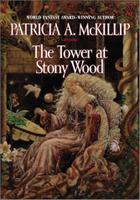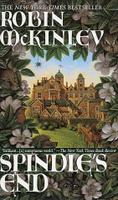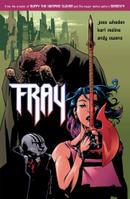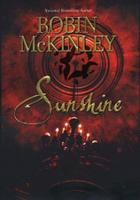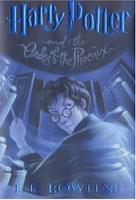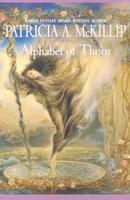It took me a bit longer to get into this book than is usual with McKillip's work, but once I did, it was as if I had been ensorcelled-- rather like several of the characters in the book. There are several different towers in this book, and one of them is a tower where a young girl, Melanthos, goes to see things-- fragments of stories-- in a mirror, and then she embroiders what she sees. The reader of this book has a similar experience: you enter this tower, this book, and you glimpse fragments of several different stories, and slowly those stories are woven together until you become part of the story, too.
The main thread of this interwoven plot centers on a knight named Cyan Dag (whose emblem, incidentally, is three towers), who is sent on a quest by a mysterious woman bard-- but his quest is not quite what he thinks when he embarks. I had my doubts about the veracity of the reason for his quest early on, but I didn't guess the real reason for his quest. It is all the more beautiful and moving when you discover why it is that Cyan Dag, and he alone, was chosen for this quest. It is mentioned more than once that Cyan Dag sees with his heart, that he has ancient eyes. He could never have accomplished what he did if he'd been asked directly-- he would have thought it impossible for anyone, and perhaps his brain would have gotten in the way of his heart. The bard explains to him, after his quest is over:
We needed you... We wanted all your courage and your gentleness, your determination, your loyalty, and your gift for seeing and for doing, as when you heard the young boy crying in the rain, what must be done.
This is a beautiful book-- three towers (and more), three sisters, and one faithful knight bringing peace and magic back into his world.
| Title: | The Tower at Stony Wood |
|---|---|
| Author: | Patricia McKillip |
| Date published: | 2001 |
| Genre: | Fantasy |
| Number of pages: | 304 |
| Notes: | This book was a birthday present. |


